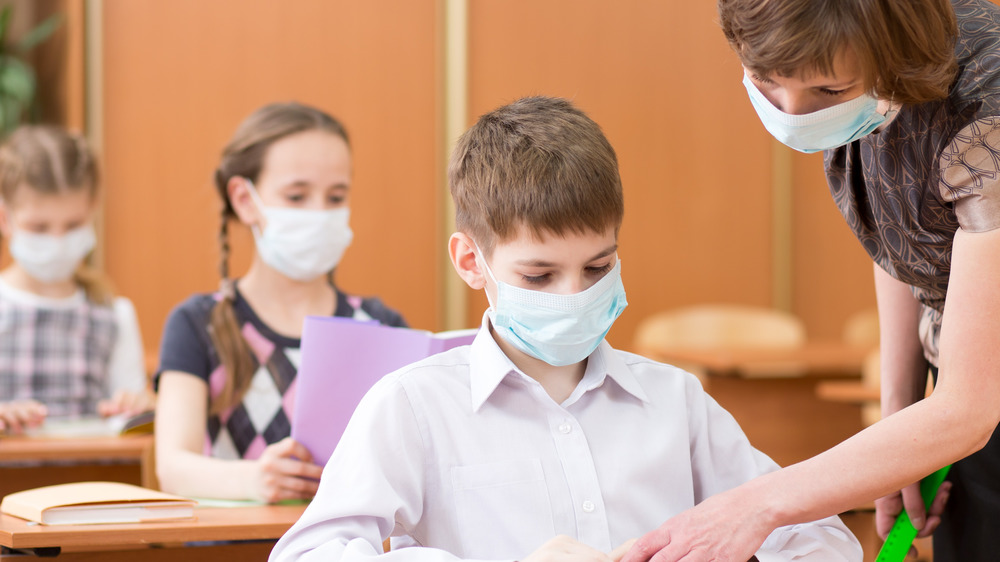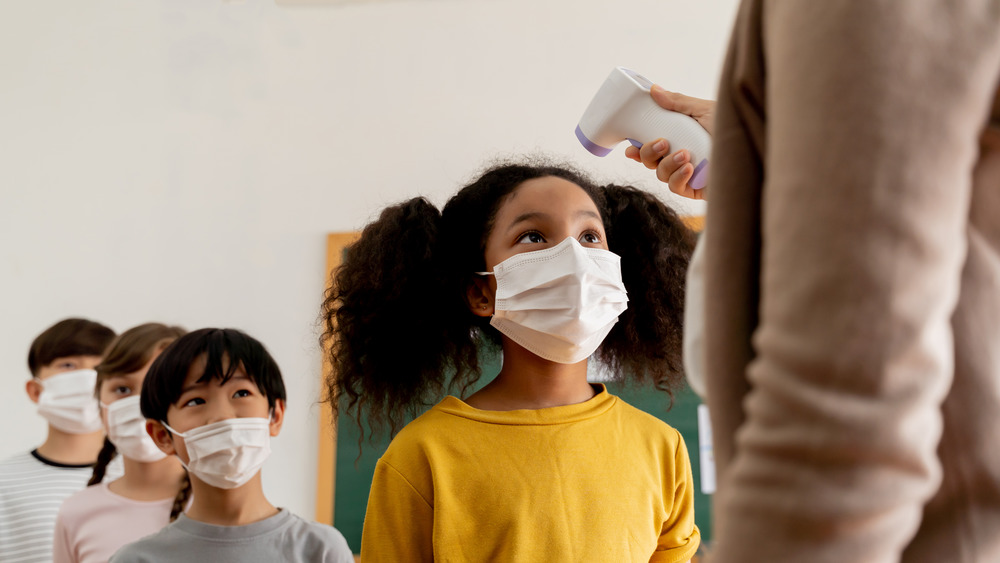Why Kids Spread COVID-19 More Than Adults Do
While the CDC (which, we must remember, is a government agency) has been pushing the agenda of opening all schools nationwide rather than continuing to hold virtual classes, this is still a hotly-debated matter in some quarters. While some studies seem to show that there's not too much risk associated with having students go back to school, still others show a spike in COVID rates that do appear clearly linked to schools staying open.
Teachers feel quite differently from the government regarding the issue, as well they might: HealthAffairs points out that between 42.0 and 51.4 percent of all school employees meet the CDC's criteria for being in a potentially high-risk group for severe COVID-19.
Perhaps the real X-factor, however, is something that may vary from district to district, school to school, or even classroom to classroom: how closely do parents monitor their child's possible COVID symptoms, and do they keep them home from school if there's a chance they may be infected? This question is more serious than we may have thought, since according to Forbes, two studies show that children spread the virus more efficiently than do adults.
What makes kids better virus spreaders?
While it's a relief to know that children are at less risk of severe COVID-19 infection than are adults, it's important to keep in mind that, while they may not be showing any symptoms, they may still be carrying (and sharing) the germs. A study published in the Journal of the American Medical Association reported on children being treated at a pediatric hospital in Chicago and found that kids under the age of 5 who exhibit mild to moderate coronavirus symptoms are actually carrying from 10 to 100 times as much of the virus as are adults. When they sneeze, cough, or shout (something under-5s are very prone to doing, and how many of them ever think to cover their faces when they do the first two?), they expel far more germ-laden droplets, too.
Another study from Italy (via medRxiv), seems to show that children under the age of 14 may spread the virus at a rate more than twice that of adults. Study authors concluded: "Although childhood contacts were less likely to become cases... children were more likely to infect household members." Looks like we all need to keep on taking the necessary precautions to keep our kids, our teachers, our families, and everyone else within seven degrees of separation (meaning: everybody, up to and including Kevin Bacon) safe.


